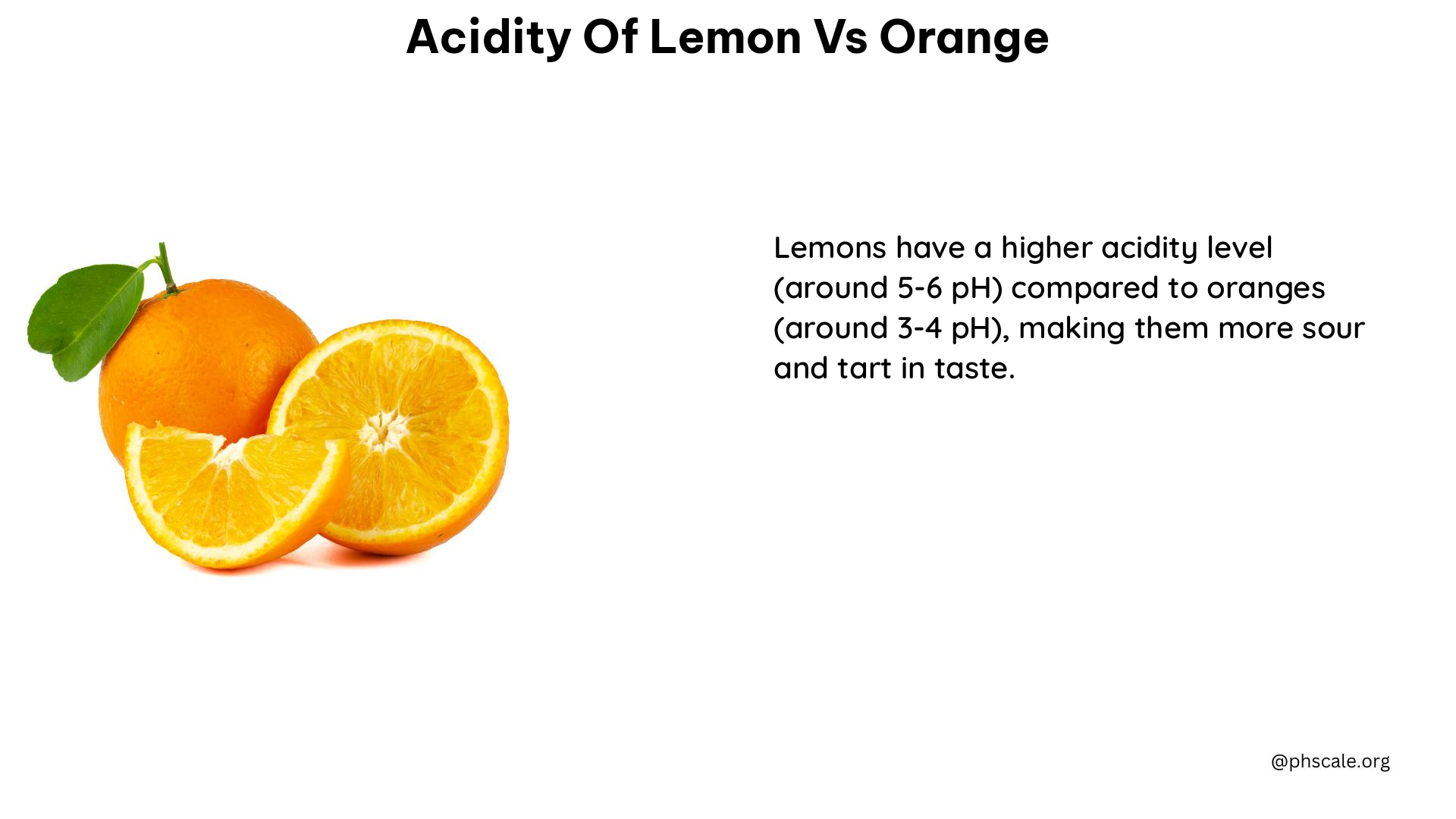The acidity of lemon juice compared to orange juice is a significant difference, with lemon juice being more acidic due to its higher citric acid content. This article delves into the details of the citric acid levels, pH ranges, and the impact of this acidity on teeth, health benefits, and consumption recommendations.
Citric Acid Content
Lemon juice has a higher citric acid content compared to orange juice, as shown in the table below:
| Fruit | Citric Acid Content |
|---|---|
| Lemon Juice | 48 g/L (squeezed from lemons), 34–39 g/L (from concentrate) |
| Orange Juice | 17 g/L (ready-to-consume), 25 g/L (from concentrate) |
The higher citric acid content in lemons, ranging from 5 to 7%, is the primary reason for their increased acidity compared to oranges, which have about 1% citric acid content.
pH Levels

The pH levels of lemon juice and orange juice also differ significantly:
- Lemon Juice: pH 2.30 (most acidic)
- Orange Juice: pH 4.35 (less acidic)
The lower the pH, the more acidic the substance, and lemon juice, with a pH range of 2 to 2.6, is considerably more acidic than orange juice, which has a pH range of 3.69 to 4.34.
Impact on Teeth
The acidity of citrus fruits can cause damage to tooth enamel, and the lower the pH, the more damage is done to the teeth. Oranges, with a higher pH, are less damaging to teeth than lemons, limes, and grapefruits.
Health Benefits
Both lemons and oranges offer various health benefits, including anti-inflammatory, anti-diabetic, anti-cancer, and antibacterial properties. They are both high in vitamin C, but they have different mineral profiles. Oranges contain more calcium, potassium, magnesium, copper, and zinc, while lemons are richer in iron and phosphorus.
Consumption and Balance
To balance the acidity of lemon juice, it is recommended to consume it in ample water or other fluids throughout the day, which can help reduce urine supersaturation and enhance urinary citrate excretion. Additionally, oranges are more alkaline-forming in the body, which can help counterbalance the acidity of lemons.
Contaminants and Chemicals
Citrus fruits can contain contaminants like pesticides, heavy metals, and other chemicals. To minimize exposure, it is advisable to choose organic or locally sourced fruits and wash them thoroughly before consumption.
Alternatives and Solutions
For those who find lemons too acidic, alternatives like lime juice or grapefruit juice can be used. Additionally, mixing lemon juice with other juices or consuming it in smaller quantities can help balance its acidity.
History
Lemons and oranges have been consumed for centuries, with lemons being used for their medicinal properties and oranges being a staple fruit in many cultures.
Helpful pH Quantity to Consume
A helpful pH quantity to consume would be to balance the acidity of lemons by mixing them with other juices or consuming them in smaller quantities. For example, mixing lemon juice with water or other fluids can help reduce its acidity and make it more palatable.
References
- Quantitative Assessment of Citric Acid in Lemon Juice, Lime Juice, and Orange Juice (NCBI)
- Orange Juice vs. Lemon Juice: Which one is Healthier? Know Here (Krishijagran)
- Orange vs. Lemon — Nutrition Comparison and Health Impact (Foodstruct)
- The Research – pH Levels in Different Citrus Fruits (Science Investigation)
- Oranges vs Lemons (Limoneira)
